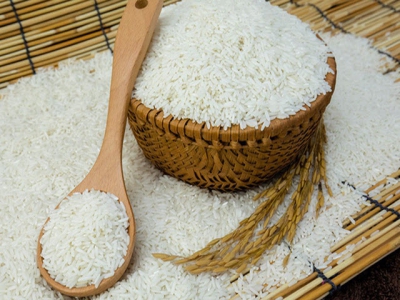Bangladesh lowers import duties on rice

Bangladesh's government agreed to reduce tariffs on imported rice in order to diversify supply sources in an effort to curb the galloping growth in food prices.
Rice prices in the Bangladesh market are increasing sharply. Photo: TL.
Bangladesh's National Board of Revenue (NBR) has agreed to cut the tax on imported rice from 25% to 15%, according to the Vietnam Industry and Trade Center (VITIC). The new tariff level is in force until the end of October.
The information is what caused a 10% rise in the price of non-basmati rice, India's premium rice, in only three days (August 15-17). As a result, the price increased to 35 rupees from 32 rupees.
The decision was taken in response to a request by Bangladesh's Food Ministry. The government is encouraging companies to import rice in order to maintain local rice prices at a level that will have a minimal effect on people's standard of living.
Last December, Bangladesh lowered the tax on imported rice from 62.5 percent to 25%, aiming to avert a rise in rice prices.
According to the Bangladesh Trade Corporation (TCB), the price of raw rice in July rose by 4% on a monthly basis, to an average of 44 takas per kg, 38% more than the price of rice imported from India.
Prices continued to rise in August, with mid-August raw rice in Dhaka costing 46-50 takas per kg, up from 44 takas a month earlier; medium milling rice costs 50-60 takas per kg, while improved rice costs 65-78 takas per kg.
Bangladesh produced 38.6 million tons of rice in the 2020-2021 crop year, an increase of more than 6% over the previous harvest. Rice consumption is about 34 million tons per year.
Bangladesh is Vietnam's sixth-largest rice export market. Vietnam sold almost 53,000 tons of rice to Bangladesh in the first seven months of this year, worth USD 32 million, a rise of 9,323 % in volume and 10,972 % in value.
Related news
 Farmers struggle as rice trader canceled their deposits
Farmers struggle as rice trader canceled their deposits Costly travels and difficulties in passing through Covid-19 checkpoints have had traders accepted to drop the deposit for rice purchase, resulting in the Mekong
 Enthusiastically shifting dragon fruit to the official export quota
Enthusiastically shifting dragon fruit to the official export quota In addition to consolidating and expanding traditional export markets, Binh Thuan province will strengthen trade promotion to open new markets.
 Struggling in finding ways to reduce fertilizer prices
Struggling in finding ways to reduce fertilizer prices An Giang is a land of rice that consumes a massive amount of fertilizer, so it is desperately trying to find ways to reduce fertilizer prices